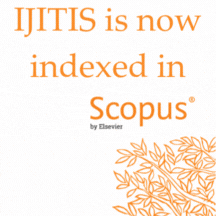Addressing Global Warming Issues in Schools Through Curriculum Integration
DOI:
https://doi.org/10.15157/IJITIS.2024.7.3.115-136Keywords:
Curriculum, Education, Global Warming, Integration, PedagogyAbstract
Global warming is gradually shifting weather patterns, causing sea levels to rise, and increasing the frequency of extreme weather events. To effectively mitigate its effects and adapt to the changing climate, it is imperative to have a thorough understanding of global warming and its impacts. Thus, the purpose of this study is to use curriculum integration to address global warming issues in schools. It takes educational cues from Finland, Japan, South Africa, and New Zealand about how to teach about global warming. In order to accomplish the study's goal, a systematic review of the literature was carried out, incorporating and deleting journal articles from databases with broader coverage, including Scopus, WoS, and DOAJ. Thematic analysis was used to examine the data. The comparative study's conclusions show that while South Africa implements climate education policies unevenly, Finland is committed to interdisciplinary teaching, Japan incorporates climate change education into curricula, and New Zealand incorporates climate science across a variety of subjects. It was suggested, based on the findings, that countries create and carry out professional development initiatives to give educators the know-how and abilities needed to instruct students on climate change-related subjects.
Downloads
Published
How to Cite
Issue
Section
License
Copyright (c) 2024 Author

This work is licensed under a Creative Commons Attribution 4.0 International License.








